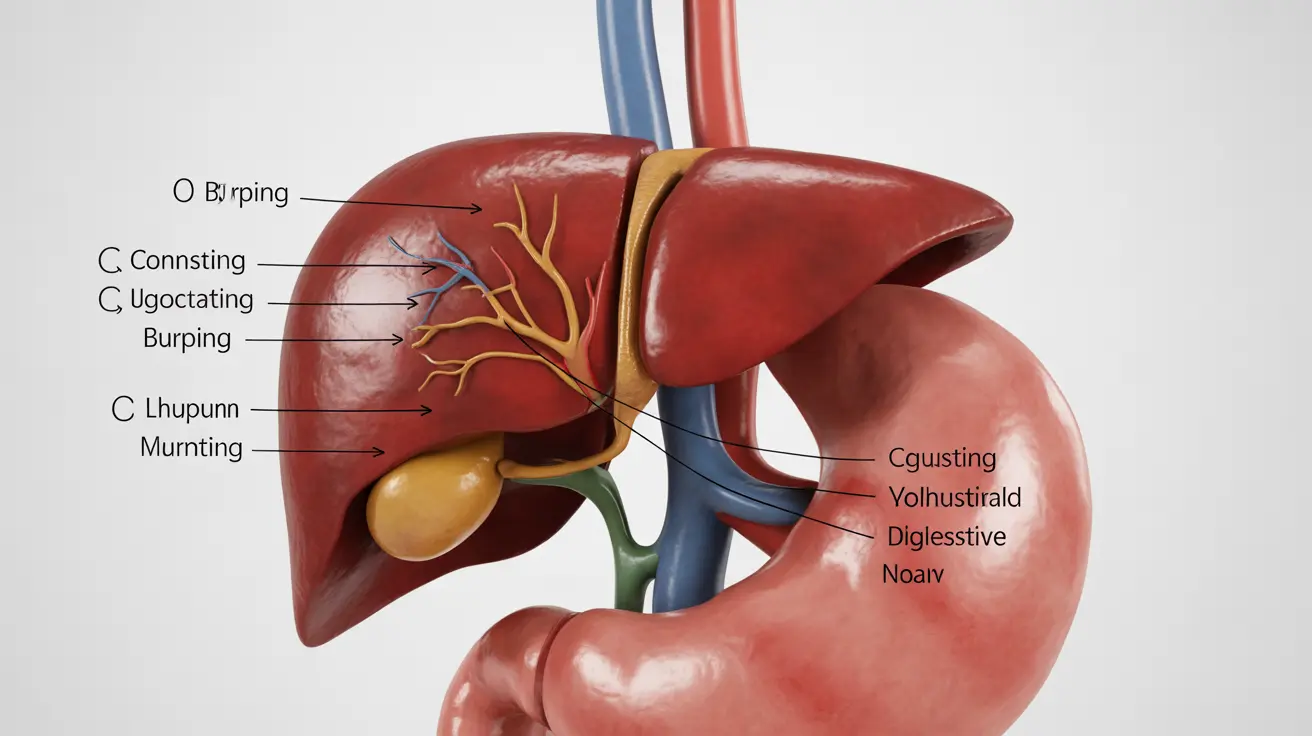When experiencing frequent burping, many people wonder if it could indicate an underlying liver condition. While burping is commonly associated with digestive issues, understanding its potential connection to liver health is important for proper diagnosis and treatment. This article explores the relationship between excessive burping and liver problems, helping you better understand when to seek medical attention.
The Connection Between Burping and Liver Health
Liver problems can indeed affect your digestive system in various ways, sometimes manifesting as increased burping or acid reflux. This connection occurs because the liver plays a crucial role in digestion and metabolism. When liver function is compromised, it can lead to various digestive symptoms, including excessive gas and burping.
Common Liver-Related Digestive Symptoms
Liver dysfunction can manifest through several digestive symptoms:
- Frequent burping or belching
- Bloating and abdominal discomfort
- Nausea and indigestion
- Acid reflux or heartburn
- Loss of appetite
Understanding Why Liver Problems Cause Burping
When the liver isn't functioning properly, it can affect bile production and flow, which are essential for proper digestion. This disruption can lead to increased gas production and subsequent burping. Additionally, liver problems may cause portal hypertension, which can contribute to digestive symptoms including excessive burping.
Liver Conditions Associated with Digestive Symptoms
Fatty Liver Disease
People with fatty liver disease often experience various digestive symptoms, including increased burping and acid reflux. This condition can affect the liver's ability to process fats effectively, leading to digestive disturbances.
Cirrhosis
Advanced liver disease or cirrhosis can significantly impact digestive function. Patients with cirrhosis may experience more severe symptoms, including frequent burping, bloating, and acid reflux, due to changes in portal blood flow and digestive system function.
When to Seek Medical Attention
While occasional burping is normal, you should consult a healthcare provider if you experience:
- Persistent or excessive burping
- Burping accompanied by abdominal pain
- Additional symptoms like jaundice or extreme fatigue
- Unexplained weight loss
- Dark urine or pale stools
Management and Treatment Approaches
Treatment for liver-related digestive symptoms often requires a comprehensive approach that addresses both liver health and digestive issues. This may include dietary modifications, medication management, and lifestyle changes to support overall liver function and reduce digestive symptoms.
Frequently Asked Questions
Can frequent burping be a sign of liver problems or liver disease?
Yes, frequent burping can be one of several digestive symptoms indicating liver problems. However, it's important to note that burping alone isn't a definitive sign of liver disease and should be evaluated alongside other symptoms.
How does liver damage cause symptoms like burping, bloating, or acid reflux?
Liver damage can affect bile production and digestive function, leading to increased gas production and digestive disturbances. Portal hypertension from liver disease can also contribute to these symptoms by affecting blood flow in the digestive system.
What digestive symptoms are commonly linked to liver dysfunction and acid reflux?
Common digestive symptoms associated with liver dysfunction include frequent burping, bloating, acid reflux, nausea, loss of appetite, and abdominal discomfort. These symptoms often occur alongside other signs of liver problems.
Are people with fatty liver disease more likely to experience gastroesophageal reflux or burping?
Yes, individuals with fatty liver disease may experience increased instances of gastroesophageal reflux and burping due to the liver's reduced ability to process fats and regulate digestive functions effectively.
How is acid reflux managed differently in patients with liver cirrhosis or severe liver disease?
Acid reflux management in patients with liver cirrhosis requires careful consideration of medication choices and potential interactions. Treatment often involves a combination of lifestyle modifications, dietary changes, and medications that are safe for compromised liver function.




